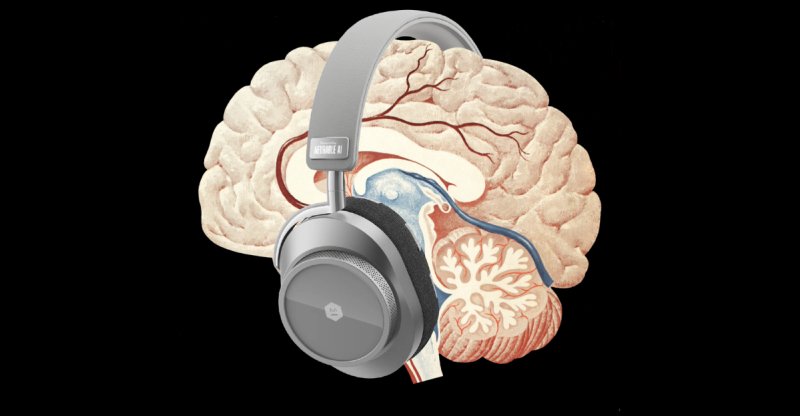
For months, I’ve been testing a pair of headphones that claim to read my mind. It’s not quite telepathy, but it’s pretty close. These headphones, created by a company called Neurable, use a brain-computer interface to pick up electrical signals from my brain. The accompanying app then interprets this data, alerting me when my focus starts to wane. This isn’t science fiction; Neurable is actively working to integrate this brain-tracking technology into a wider range of devices. Imagine earbuds, glasses, even helmets – all capable of streaming real-time data about your brain activity.
Neurable’s technology cleverly employs electroencephalography (EEG) sensors combined with sophisticated algorithms to analyze brainwave patterns. While it doesn’t decipher your thoughts, it can accurately detect shifts in attention levels and potentially identify early signs of conditions like depression or Alzheimer’s. This is a significant leap forward from current health trackers like Apple Watches and Oura Rings, which primarily measure downstream effects rather than the underlying neurological causes.
The advantage of directly measuring brainwaves is profound, as explained by Neurable’s CEO, Ramses Alcaide. He points out that our brains are naturally designed to mask weaknesses – an evolutionary mechanism. By tapping into the source, brain-computer interfaces can detect subtle issues long before they manifest as noticeable symptoms. This early detection could be transformative in managing and treating a wide array of neurological conditions.
Neurable isn’t alone in this exciting field. Apple has patented an AirPod design incorporating brain activity monitoring, and other companies like NextSense and even Meta are exploring similar technologies, although their approaches often involve more invasive procedures. Neurable, however, already has a product on the market – and I’ve been using it.
The Master & Dynamic MW75 Neuro headphones, priced at $700, look like any other noise-canceling headphones, but the “Powered by Neurable AI” badge hints at the technology within. The accompanying app features a fun rocket ship game that demonstrates the technology’s capabilities. The harder you focus on the onscreen numbers, the faster the rocket flies – a simple yet captivating demonstration of brain-computer interaction.
The EEG sensors detect various brainwave frequencies, correlating them with different mental states. Beta waves, for example, offer insights into attention and anxiety levels, while alpha waves indicate relaxation. The potential applications are vast. The Pentagon is already utilizing Neurable’s technology to study traumatic brain injuries in soldiers, and the implications extend to sports, Alzheimer’s, and Parkinson’s research.
The MW75 Neuro headphones currently focus on enhancing attention. The app measures focus levels (low, medium, high) and suggests breaks when needed. A Biofeedback feature uses music to gently guide your focus towards a higher level. While still in beta, the Brain Health reports provide daily estimates of metrics like anxiety resistance, cognitive speed, and wakefulness. Importantly, Neurable prioritizes data privacy and security, employing strong encryption and anonymization techniques. Their business model is not data-driven, eliminating incentives for exploiting personal information.
While the headphones’ impact on my productivity is somewhat subjective (a placebo effect is certainly at play), the underlying technology is undeniably impressive. The prospect of integrating this technology into everyday devices like earbuds is particularly intriguing. Imagine the insights we could gain about our cognitive well-being from continuous monitoring throughout our day. This opens a Pandora’s Box of possibilities, but also raises ethical questions about data collection and potential misuse. Neurable, however, appears committed to responsible development, emphasizing the importance of accessibility and avoiding the creation of a data-driven surveillance system.
The future of neurotech is rapidly approaching. While mind-reading in the truest sense remains science fiction, the ability to monitor and understand brain activity in real-time is rapidly becoming a reality. Whether this future is utopian or dystopian remains to be seen, but companies like Neurable are at the forefront of this transformative technology. The potential benefits are immense, but responsible development and ethical considerations are paramount in shaping this exciting new frontier.










